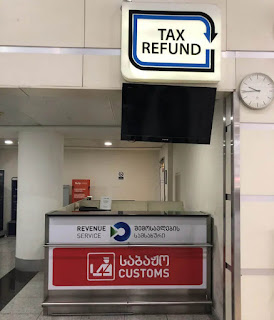Europe Is Not That Expensive

It is possible to travel in Europe with 500 dollars per month if you cook your own food, use hospitality exchange and rent rooms.
We have now lived and travelled two years in Europe and heard countless complaints from fellow travellers about Europe being too expensive, especially for people coming from dollar-economies. Europe has been expensive, but no more than for example Cambodia, Hong Kong, or Bolivia.
It is possible to travel in Europe with US$ 500/month for anyone who cooks his own food, prefers hospitality exchange and renting rooms instead of using hotels, and is willing to give up renting cars and using taxis.
Public transportation, trains and buses, and budget flights are the cheapest way to move around. The more south you travel, the cheaper they become. Hitchhiking can take some time, but it is an excellent way to meet people.
| From-To | Miles | US $/ person |
US $/ mile |
|
|---|---|---|---|---|
| Train | Italy Ventimiglia – Genova | 100 | 13.20 | 0.13 |
| Train | France Nice – Toulon | 93 | 29 | 0.31 |
| Train | Spain Barcelona – Valencia | 227 | 30 | 0.13 |
| Bus | Spain Alicante – Granada | 218 | 37.50 | 0.17 |
| Bus | France Cagnes-sur-mer – Nice | 8 | 1.40 | 0.18 |
Being a member of hospitality exchange communities makes travelling even cheaper. Hospitality exchange works well in Europe except in Spain where many hosts are males looking for female company. If you ask your host, they are probably eager to help you to find a room or a flat for rent for a longer stay.
Drugs Are Dear Everywhere
Alcohol is relatively cheap in the south, especially wine in wine producing countries. White and red wine can cost less than US$ 2/bottle. However, stronger liquors are more expensive as taxes are usually tied to the alcohol percentage. The more north in Europe you move, the higher price you pay for alcohol. Nordic countries and Finland are the extreme.
Addictions are expensive in Europe, while they are less expensive in, say Asia. Cigarettes have high taxes, the higher the more north you travel. Also coffee costs a lot, especially in coffee shops. The easiest way to cut costs is by stopping to poison yourself. If a cup of coffee in a coffee shop cost the same as two pounds of carrots, you can easily figure out which one keeps you in better going.
Eating And Sleeping
| Product | France, US $ (9/2009, 1,42) |
Italy, US $ (2/2010, 1,35) |
|---|---|---|
| Milk, 1 gallon | 3.0 | 2.5 |
| Bread flower mix, 1 pound | 0.6 | 0.7 |
| Cheese, pound | 3.1 | 8.8 |
| Apples, pound | 0.6 | 1 |
| Bananas, pound | 0.6 | 1.2 |
| Potatoes, pound | 0.2 | 0.2 |
| Onions, pound | 0.4 | 0.4 |
| Eggplant, pound | 0.9 | 0.5 |
| Sallad, each | 0.7 | 0.6 |
| Eggs, each | 0.1 | 0.1 |
| Lentils, pound | 0.9 | 0.9 |
| Wheat flowers, pound | 0.3 | 0.2 |
| Crushed tomatoes, pound | 0.5 | 0.4 |
| Granulated Coffee, pound | 7.2 | 10.1 |
| French Red Wine, bottle | 1.39 | 6.8 |
Eating in restaurants and staying in hotels or hostels are the most expensive ways to travel in Europe. A full tourist meal costs easily over US$ 30 dollars/per person. With the same price you can buy vegetables and fruits for one week. They cost in a local supermarket, e.g. Lidl, under US$ 0.5/pound everywhere in Europe. The same applies to accommodation. One night in a 3-4 star hotel costs almost the same as renting a modest room for a month. In two years we have only stayed three nights in a hotel, renting flats or rooms most of the time instead.
Basically the same rules applies to all other countries as well. If you want to show off, visit tourist attractions, and be scammed, travelling will be expensive no matter where you go. On the other hand, living in a modest and ecological, sustainable way reduces costs and enables travelling anywhere.
Visas And Winter
We have enjoyed hassle-free life as we don’t need visas or living permits in Europe. These meaningless pieces of papers can cost quite a lot of money when travelling, some US$ 300-500 per year. They also cause a lot of unnecessary and unnecessary travelling, offer unpleasant experiences and cause uncertainty because of the despotism of local officials. This applies to all countries. Our Chinese and Serbian friends have been rudely mistreated by EU countries when applying for visas.
Winter in Europe is far from pleasant and one of the biggest reasons to stay away. In the north, houses are properly heated, but temperature differences inside and outside can be over 70 degrees F. On top of that, the more north you go, the darker it gets. The south is the opposite: there is no heating and houses are built to be cold as hot summer weathers are form a bigger problem for locals than cold winters. Sometimes it can be 32 degrees F inside at night. For outdoor people who like walking, temperature differences are not pleasant not to mention the physical changes winter makes to the body. And think about the amount of polluting energy wasted for heating. On the other hand potable tap water helps to reduce the amount of plastic bottle trash.
All in all, Europe doesn’t differ from other travel destinations. By consuming moderately and choosing for less expensive options, you can travel well anywhere in the world. Hope to see you around!










Comments